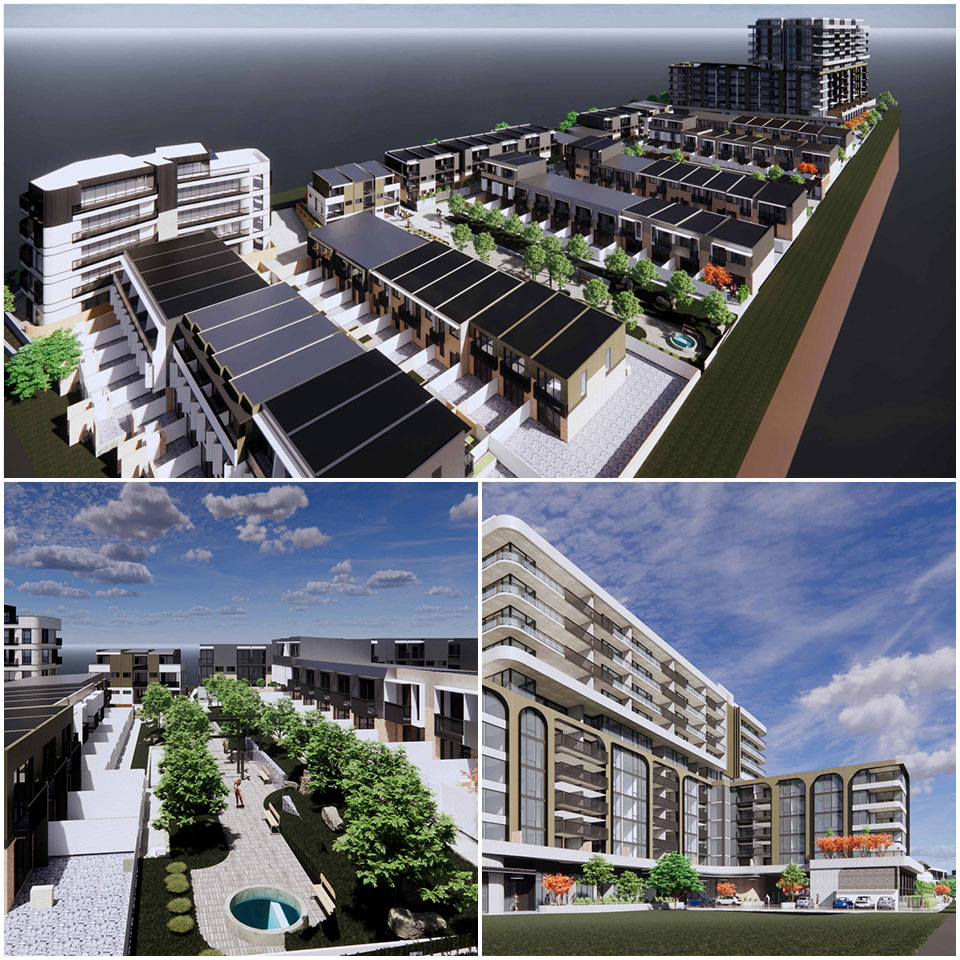Canberra-based development group Core has revised plans for a sprawling residential masterplan in Gungahlin, one of the fastest-growing regions in the country.
The project, planned for a 1.7ha site on the corner of Camilleri Way and Manning Clarke Crescent at the southern edge of the Gungahlin Town Centre, in the city’s northern growth corridor, has been reduced in scale after council and community consultation.
The amalgamated site, which is next to the Mullanggari Grasslands Nature Reserve, is zoned for high-density residential development.
Core, headed up by Ryan and Martine Capello, has delivered a number of significant residential and commercial projects in the Canberra region since its launch in 2011.
Under its resubmitted plans, designed by Judd Studio, the masterplan will now be constructed with a “stepped” built form, which takes in feedback from the National Capital Design Review Panel.
The project, originally comprising one apartment building and a swathe of townhouses, will now transition from low to high density in a more staggered way while providing a greater diversity of home types.
The development, to be known as Walk Street, will include 236 apartments in one-, two- and three-bedroom configurations across two buildings of seven and 12 storeys.
To enable the construction of a second apartment building the developer has reduced the total number of townhouses to 87.

The additional building will offer Canberra’s first “cold-shell” unit layouts, providing buyers with complete customisation at the time of purchase, including floor layout, finishes and fixtures.
Core has also increased the commercial space planned for the ground floor of the residential buildings, from 500sq m to 700 square metres.
Amenities will include barbecue facilities, dining areas and co-working spaces.
It will be built above a basement level providing 540 parking spaces, 44 disability parking spaces and 18 motorcycle spaces.
The project is the second for Core in Gungahlin following the completion of Ruby, an 18-storey, 180-apartment development on the corner of Gribble Street and Anthony Rolfe Avenue which wrapped up in early 2020.
The developer has also been busy in Canberra’s west, delivering 45 one- to three-bedroom townhouses as part of its Japanese-inspired Shoji development in Coombes, as well as 17 townhouses and 70 apartments at its East Gate development in Denman Prospect.
Core has a further six projects in its pipeline including a townhouse development, known as Marlu, and dual-stage apartment precinct, dubbed Boulevard, both in Denman Prospect.
The developer’s project pipeline has been buoyed by the city’s red-hot residential market being driven by a strong local economy, plenty of jobs and more demand than supply.
Canberra’s median residential property values were second only to Sydney over the past financial year.
The city is now the second-best performing rental market in the country, after house rents rose by 12.5 per cent over the year resulting in strong investor demand for rental stock.